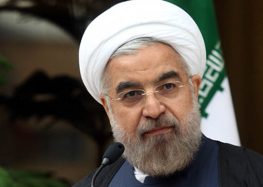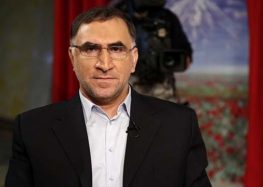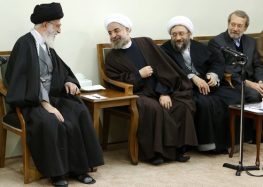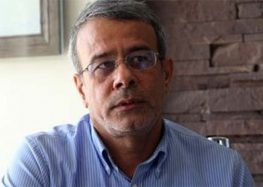Judiciary Chief Threatens to Punish Opponents of Extrajudicial House Arrests
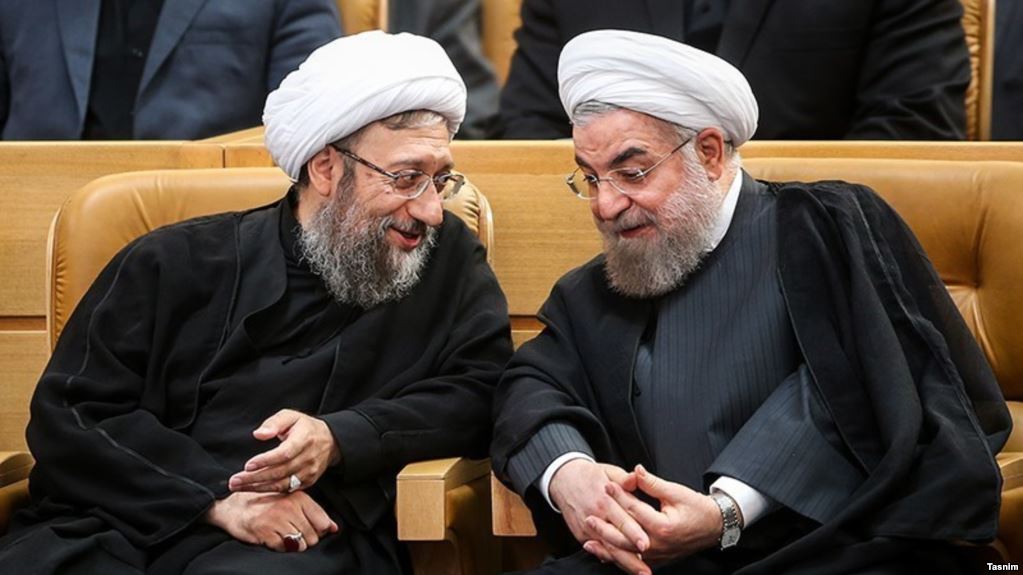
In the run-up to Iran’s recent elections, thousands of voters called for an end to the more than six-year extrajudicial house arrests of three opposition leaders.
Less than two weeks after President Hassan Rouhani’s re-election, the hardline judiciary is attempting to silence opponents of the house arrests. A top official has also claimed Rouhani is powerless to resolve the situation.
“We warn those in the media and individuals who are exerting pressure by repeatedly raising this matter to stop or else the judiciary will firmly put a stop to it,” said Judiciary Chief Sadegh Larijani on May 29, 2017.
“One of the candidates in the election told his supporters that he has come to end the house arrests. Who are you to end it?” said Larijani, indirectly referring to Rouhani’s 2013 presidential campaign promise.
“Let’s assume the Supreme National Security Council rescinds its order and the house arrests come to an end,” he added. “Even in that case, the judiciary’s work would only be to begin to prosecute them.”
Former presidential candidates Mehdi Karroubi and Mir Hossein Mousavi, and Mousavi’s wife Zahra Rahnavard, have been confined to their homes in Tehran since February 2011 without trial or access to due process.
The three were detained for publicly disputing the result of the 2009 presidential election and encouraging the peaceful, mass protests that ensued. Those protests came to be known as the Green Movement, which was violently repressed by the state.
On May 22, in his first press conference after being declared the winner of the May 19 election, Rouhani refused to commit to ending the house arrests —a pledge he had made during his first presidential campaign.
Instead he suggested that the solution depends on cooperation between the judiciary and other state branches.
“The country is ruled by laws and we should all submit to them,” he told reporters. “The executive, legislative and judicial branches have their own responsibilities. We are moving forward on the basis of the Constitution.”
“I am responsible for the rights of every citizen, even Iranians living abroad,” added Rouhani. “Wherever I see the rights of Iranians being violated, I will take action within my powers. In cases related to the judiciary, I will respond by direct communication or in joint meetings. The next government plans to implement the Charter on Citizens’ Rights. In this respect, the rights of all people are important to me.”
Deputy Parliament Speaker Ali Motahari, a conservative, has been the most vocal opponent of the house arrests.
“Some steps have been taken towards resolving the house arrests and we have to listen to the reasoning by the opposing side,” Motahari said in an interview on May 8, 2017. “We have to move towards improving the conditions in the country and prevent issues before they turn into a crisis.”
On November 9, 2016, Motahari revealed he had “several discussions” with Rouhani to resolve the issue, but that ultimately the decision was up to Supreme Leader Ali Khamenei, who has adamantly opposed the release of the opposition leaders.
“Since it is the supreme leader’s wish to continue the house arrests, other officials don’t get involved,” he said.
While Iran’s Constitution grants vast powers to the supreme leader, he is not constitutionally endowed with the ability to put individuals under house arrest without a court order.
According to Article 33, “No one can be banished from his place of residence, prevented from residing in the place of his choice, or compelled to reside in a given locality, except in cases provided by law.”

